
PAY360 2025 – 25th and 26th March
Get the 360 experience with a delegate pass. Our mantra: We do not choose speakers who read from a PR script. We focus on programming complex challenges into fresh and

Get the 360 experience with a delegate pass. Our mantra: We do not choose speakers who read from a PR script. We focus on programming complex challenges into fresh and
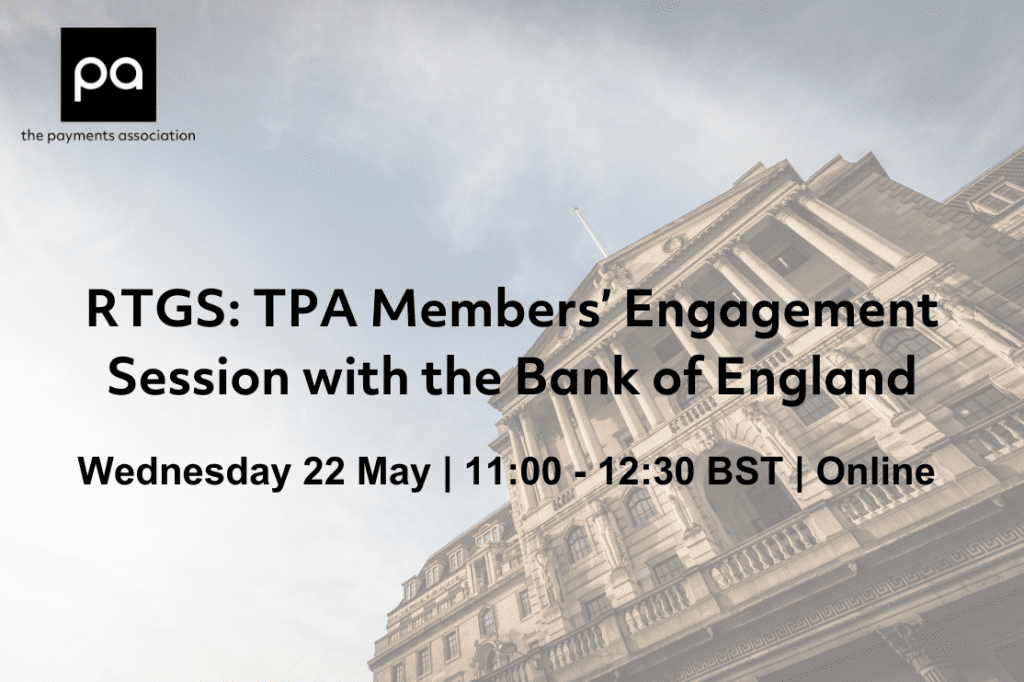
We are delighted that the Bank of England has accepted our request to offer members an opportunity to engage directly with the Bank on RTGS. This will be a deep

Conversations around a digital pound are growing louder as the weeks roll by. With use cases popping up around the globe, is it time Britain followed suit? In a similar fashion to the way coins largely made way for banknotes, digital currency is the next natural progression in the evolution of money, whether consumers like the idea of it or not.
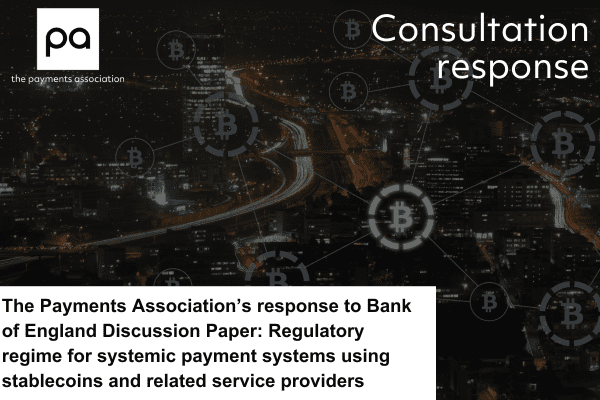
The Payments Association welcomes the opportunity to contribute to the BoE Discussion Paper “Regulatory regime for systemic payment systems using stablecoins and related service providers”. The community’s response contained in

On 30 October 2023, HM Treasury (HMT) issued its long-awaited policy document on the regulation of fiat-backed stablecoins in the UK. Framed as “Phase 1” of the UK’s approach to cryptoasset regulation, HMT’s paper was quickly followed by discussion papers from the Financial Conduct Authority (FCA), Prudential Regulation Authority (PRA) and Bank of England (BOE) on the future regulatory approach to such stablecoins.
Although there are a number of steps to go before the stablecoin regime comes into effect (with implementation anticipated in 2025), the 2023 papers give helpful insights into the direction of the new regime.

The UK holds a strong position in the rapidly developing fintech and digital payments world, but experts are divided over whether this will lead to a major breakthrough next year.

After a year of development, the royal assent of the UK Financial Services Markets Act (FSMA 2023) signifies that change is on the horizon for the UK’s financial landscape and its players.

The Bank of England (BoE) and the Financial Conduct Authority (FCA) have taken a significant step in addressing the rapid growth of stablecoins and related payment services in the financial sector by publishing its proposed regulatory regime.

On Thursday last week, The Payments Association presented the launch of its latest report ‘Navigating the rising cost of living: Payments innovation as a game-changer’ at Parliament to a range of representatives from the House of Commons, House of Lords, and industry bodies including…the HMT, the FCA, BoE and the PSR.
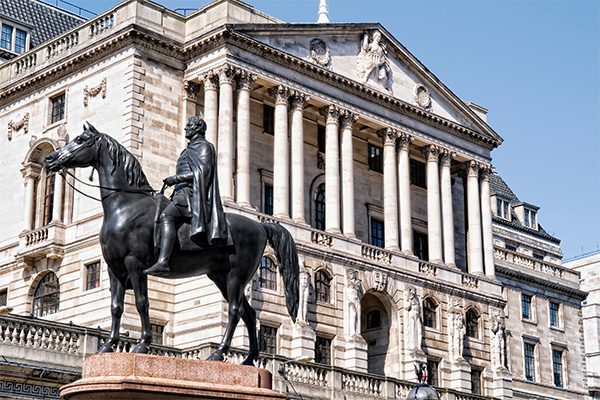
With the recent release of the Bank of England’s consultation paper on its roadmap for real-time gross settlement service beyond 2024, Payments Review examines the potential new features in store and the challenges in implementing them.

The Payments Association welcomes the opportunity to contribute to the BoE and HMT Consultation Paper “The digital pound: a new form of money for households and businesses?”. The community’s response

Key industry stakeholders discuss the challenges, opportunities, and future of digital assets in the UK, at an event hosted by Ripple and The Payments Association.

Get the 360 experience with a delegate pass. Our mantra: We do not choose speakers who read from a PR script. We focus on programming complex challenges into fresh and

The Payments Association’s Riccardo Tordera and Robert Courtneidge examine what the latest government consultations could mean for the UK payments sector.

Spencer Hanlan explores how the speed and efficiency of payments, particularly cross-border, could drive innovation to offset inflation. He sets out his top three predictions of 2023.
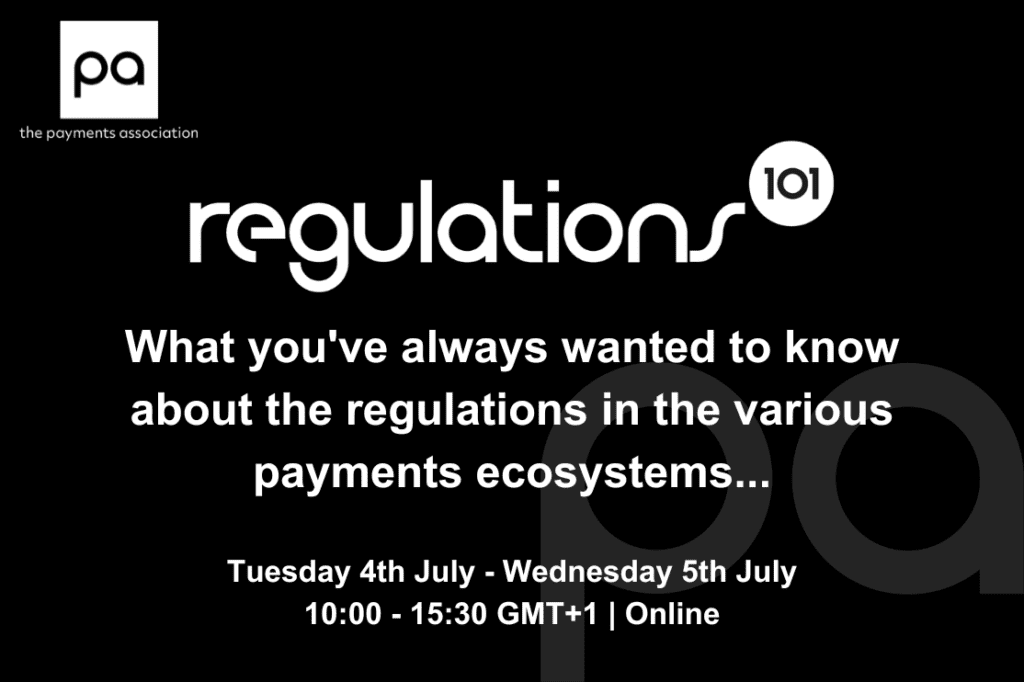
This Regulations 101 training course will cover payments regulations and frameworks (e.g. SEPA, PSD2, IFR, Open Banking, AML and other financial crime related regulations) as well as privacy and security
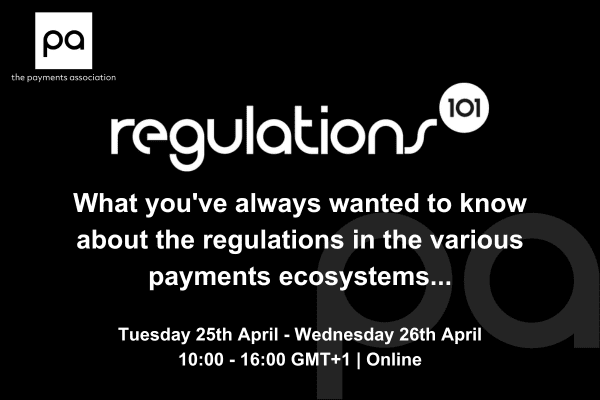
This Regulations 101 training course will cover payments regulations and frameworks (e.g. SEPA, PSD2, IFR, Open Banking, AML and other financial crime related regulations) as well as privacy and security

Rather than building a single global rulebook for payments, regional rulebooks are the better approach in the medium term, according to industry participants.

The G20’s payments programme is moving into the practical phase of its plans to improve cross-border payments. Where does it fall short?

The exponential growth of the eCommerce sector in recent years has fueled demand for easily accessible consumer credit. One of the fastest growing trends in the online payment sphere has been that of Buy Now, Pay Later schemes, with transactions using this payment method growing by 292% between 2018 and 2020, and providers attracting $11bn in venture capital funding in 2021 alone.
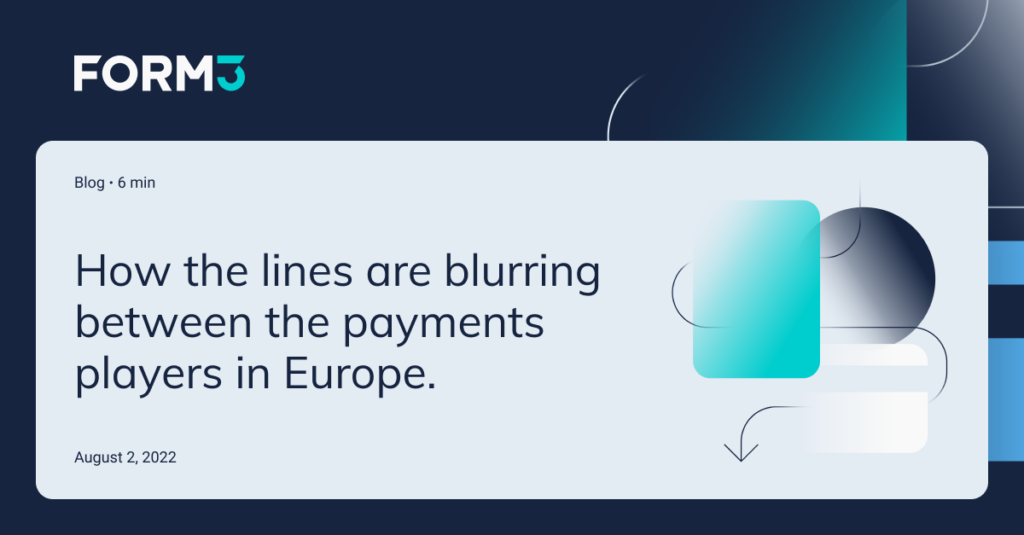
Fintech regulation in Europe shows no signs of slowing. So what are the main challenges and frameworks fintechs should be aware of to ensure their future success.
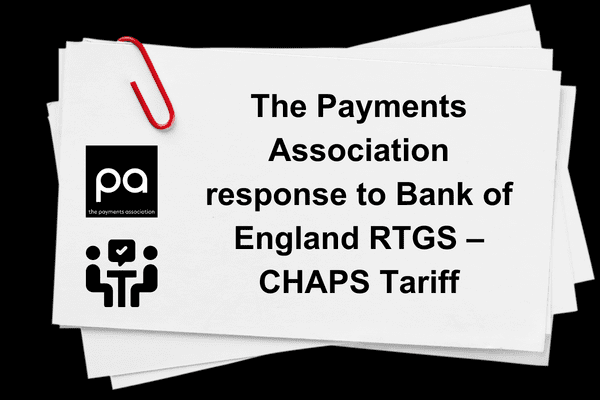
The Payments Association welcomes the opportunity to contribute to the BoE “RTGS – CHAPS Tariff Consultation”. The community’s response contained in this paper reflects views expressed by our members and
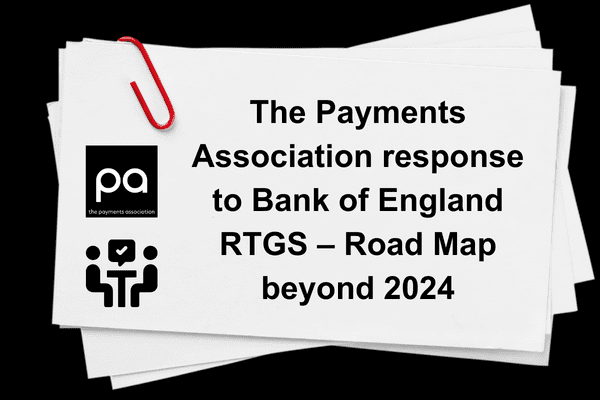
The Payments Association welcomes the opportunity to contribute to the BoE “RTGS Road Map beyond 2024”. The community’s response contained in this paper reflects views expressed by our members and
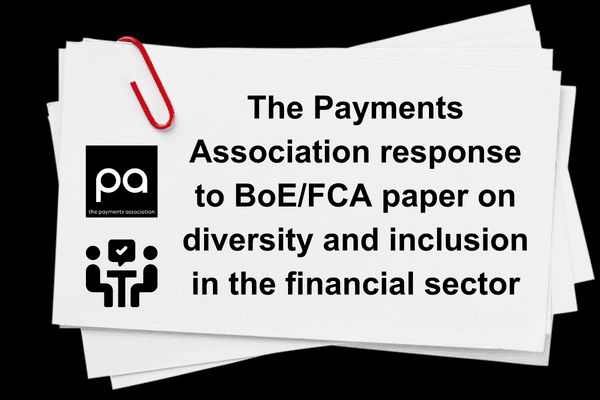
This paper sets out the Payment Association’s response to the BoE/FCA discussion paper: Diversity and inclusion in the financial sector – working together to drive change. It contains recommendations on







Log in to access complimentary passes or discounts and access exclusive content as part of your membership. An auto-login link will be sent directly to your email.
We use an auto-login link to ensure optimum security for your members hub. Simply enter your professional work e-mail address into the input area and you’ll receive a link to directly access your account.
Instead of using passwords, we e-mail you a link to log in to the site. This allows us to automatically verify you and apply member benefits based on your e-mail domain name.
Please click the button below which relates to the issue you’re having.
Sometimes our e-mails end up in spam. Make sure to check your spam folder for e-mails from The Payments Association
Most modern e-mail clients now separate e-mails into different tabs. For example, Outlook has an “Other” tab, and Gmail has tabs for different types of e-mails, such as promotional.
For security reasons the link will expire after 60 minutes. Try submitting the login form again and wait a few seconds for the e-mail to arrive.
The link will only work one time – once it’s been clicked, the link won’t log you in again. Instead, you’ll need to go back to the login screen and generate a new link.
Make sure you’re clicking the link on the most recent e-mail that’s been sent to you. We recommend deleting the e-mail once you’ve clicked the link.
Some security systems will automatically click on links in e-mails to check for phishing, malware, viruses and other malicious threats. If these have been clicked, it won’t work when you try to click on the link.
For security reasons, e-mail address changes can only be complete by your Member Engagement Manager. Please contact the team directly for further help.